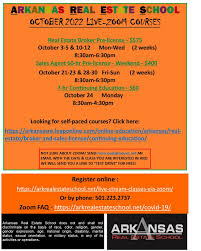
Indiana is a great place to start your real estate career. It's not as populous than some of its larger competitors, but there is a strong rental sector and high-demand houses for sale. This combined with low inventory levels in many cities makes the state a popular choice for real-estate agents.
How to Get Your Indiana Real Estate License
Pre-licensing education must be completed for 90 hours before you can become an Indiana licensed real estate agent. These courses are designed to give you the foundational knowledge you need to understand all of the legal and financial aspects of your new career. It can take one month to three months for you to complete these education hours, depending on how quickly you want to go through the course material and whether or not you choose to take the classes online or in person.
Once you've completed the 90 hours of required coursework, you can register for the state licensing exam. The exam, which is administered by PSI, consists of two parts: a national portion covering property laws and a state-specific portion that covers the rules for real estate in Indiana.
This exam lasts for three hours. 100 multiple-choice problems must be correctly answered to pass. You can take this exam either online or in-person at your local testing center. Your results will be available immediately after you complete the exam. Therefore, it is important that you study and prepare.

How to Become a Indiana Realtor
The first step is to complete Pre-Licensing Classes from a state accredited real estate school. These courses cover everything, from ownership forms to Indiana's laws and policies to closing transactions.
There are many schools that offer these courses in Indiana. It's best to find a school that matches your schedule and learning needs, as well as your budget and goals for your real estate career.
Colibri Real Estate is an established, trusted provider of real estate education. They have been helping people in the United States earn their licenses since 1999. They offer several class packages that can be tailored to your needs. In addition, they provide customer support and instructor Q&A.
IBREA of Indianapolis offers another option for students interested to learn about Indiana real estate. They are a local school that specializes in real estate and have a large number of practice tests.
A realty license is an important part of a satisfying career in the realty industry. You must meet the requirements of your state to get your license.

While it's easy to get your Indiana real estate licence, the process is not difficult. However, it does require some planning. It is necessary to complete state-approved realty courses, pass the state licensing examination, and interview a managing Broker.
Once you have completed the above steps, you can begin applying for your Indiana Professional Licensing Agency ("IPLA") license. This will include completing a background check and application for a real estate broker license.
FAQ
How do I eliminate termites and other pests?
Over time, termites and other pests can take over your home. They can cause serious destruction to wooden structures like decks and furniture. You can prevent this by hiring a professional pest control company that will inspect your home on a regular basis.
What are the downsides to a fixed-rate loan?
Fixed-rate mortgages have lower initial costs than adjustable rates. You may also lose a lot if your house is sold before the term ends.
How much should I save before I buy a home?
It depends on how long you plan to live there. You should start saving now if you plan to stay at least five years. You don't have too much to worry about if you plan on moving in the next two years.
What amount of money can I get for my house?
This varies greatly based on several factors, such as the condition of your home and the amount of time it has been on the market. Zillow.com shows that the average home sells for $203,000 in the US. This
Is it better to buy or rent?
Renting is generally cheaper than buying a home. It is important to realize that renting is generally cheaper than buying a home. You will still need to pay utilities, repairs, and maintenance. The benefits of buying a house are not only obvious but also numerous. For instance, you will have more control over your living situation.
What is the average time it takes to sell my house?
It all depends upon many factors. These include the condition of the home, whether there are any similar homes on the market, the general demand for homes in the area, and the conditions of the local housing markets. It can take anywhere from 7 to 90 days, depending on the factors.
Should I use a mortgage broker?
If you are looking for a competitive rate, consider using a mortgage broker. Brokers are able to work with multiple lenders and help you negotiate the best rate. Some brokers receive a commission from lenders. Before signing up for any broker, it is important to verify the fees.
Statistics
- 10 years ago, homeownership was nearly 70%. (fortunebuilders.com)
- When it came to buying a home in 2015, experts predicted that mortgage rates would surpass five percent, yet interest rates remained below four percent. (fortunebuilders.com)
- The FHA sets its desirable debt-to-income ratio at 43%. (fortunebuilders.com)
- Some experts hypothesize that rates will hit five percent by the second half of 2018, but there has been no official confirmation one way or the other. (fortunebuilders.com)
- This seems to be a more popular trend as the U.S. Census Bureau reports the homeownership rate was around 65% last year. (fortunebuilders.com)
External Links
How To
How to Manage a Rental Property
You can rent out your home to make extra cash, but you need to be careful. We'll show you what to consider when deciding whether to rent your home and give you tips on managing a rental property.
This is the place to start if you are thinking about renting out your home.
-
What are the first things I should consider? Take a look at your financial situation before you decide whether you want to rent your house. If you have any debts such as credit card or mortgage bills, you might not be able pay for someone to live in the home while you are away. You should also check your budget - if you don't have enough money to cover your monthly expenses (rent, utilities, insurance, etc. This might be a waste of money.
-
What is the cost of renting my house? The cost of renting your home depends on many factors. These factors include your location, the size of your home, its condition, and the season. You should remember that prices are subject to change depending on where they live. Therefore, you won't get the same rate for every place. Rightmove has found that the average rent price for a London one-bedroom apartment is PS1,400 per mo. This means that your home would be worth around PS2,800 per annum if it was rented out completely. Although this is quite a high income, you can probably make a lot more if you rent out a smaller portion of your home.
-
Is it worth the risk? There are always risks when you do something new. However, it can bring in additional income. Make sure that you fully understand the terms of any contract before you sign it. Not only will you be spending more time away than your family, but you will also have to maintain the property, pay for repairs and keep it clean. These are important issues to consider before you sign up.
-
Are there any advantages? There are benefits to renting your home. There are many reasons to rent your home. You can use it to pay off debt, buy a holiday, save for a rainy-day, or simply to have a break. No matter what your choice, renting is likely to be more rewarding than working every single day. If you plan well, renting could become a full-time occupation.
-
How can I find tenants? Once you've made the decision that you want your property to be rented out, you must advertise it correctly. You can start by listing your property online on websites such as Rightmove and Zoopla. Once potential tenants reach out to you, schedule an interview. This will enable you to evaluate their suitability and verify that they are financially stable enough for you to rent your home.
-
How do I ensure I am covered? If you don't want to leave your home empty, make sure that you have insurance against fire, theft and damage. Your landlord will require you to insure your house. You can also do this directly with an insurance company. Your landlord will usually require you to add them as additional insured, which means they'll cover damages caused to your property when you're present. However, this doesn't apply if you're living abroad or if your landlord isn't registered with UK insurers. In this case, you'll need to register with an international insurer.
-
If you work outside of your home, it might seem like you don't have enough money to spend hours looking for tenants. It's important to advertise your property with the best possible attitude. Make sure you have a professional looking website. Also, make sure to post your ads online. A complete application form will be required and references must be provided. Some people prefer to do the job themselves. Others prefer to hire agents that can help. It doesn't matter what you do, you will need to be ready for questions during interviews.
-
What should I do after I have found my tenant? If there is a lease, you will need to inform the tenant about any changes such as moving dates. If this is not possible, you may negotiate the length of your stay, deposit, as well as other details. It's important to remember that while you may get paid once the tenancy is complete, you still need to pay for things like utilities, so don't forget to factor this into your budget.
-
How do I collect rent? You will need to verify that your tenant has actually paid the rent when it comes time to collect it. You'll need remind them about their obligations if they have not. Any outstanding rents can be deducted from future rents, before you send them a final bill. If you are having difficulty finding your tenant, you can always contact the police. They will not usually evict someone unless they have a breached the contract. But, they can issue a warrant if necessary.
-
What can I do to avoid problems? It can be very lucrative to rent out your home, but it is important to protect yourself. You should install smoke alarms and carbon Monoxide detectors. Security cameras are also a good idea. Check with your neighbors to make sure that you are allowed to leave your property open at night. Also ensure that you have sufficient insurance. Do not let strangers in your home, even though they may be moving in next to you.